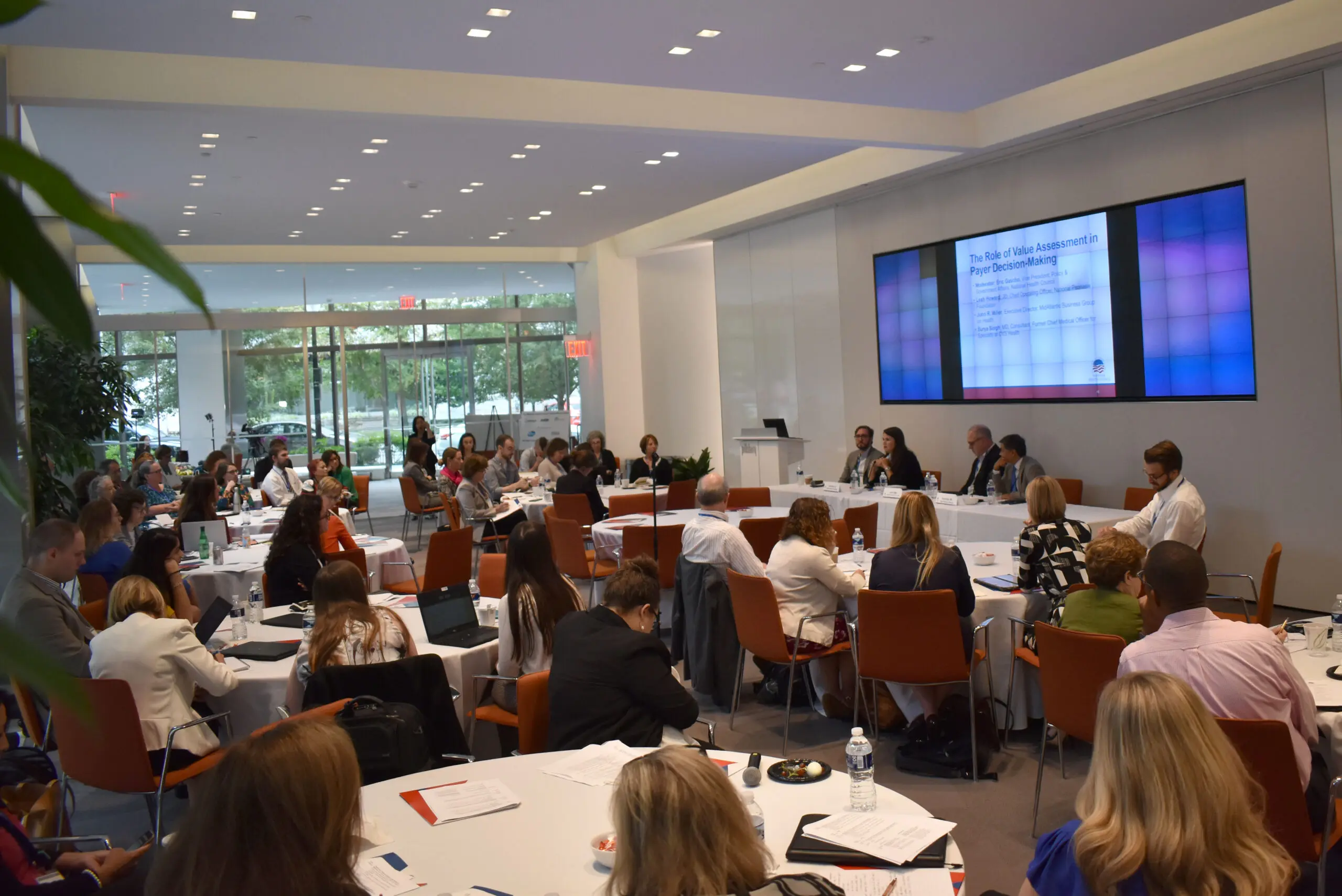Back to School with the NHC: Patient Community Training on Value Assessment
09/17/2019
By Aimee Lee Russell, Associate, Programs
This training was funded through a Patient-Centered Outcomes Research Institute® (PCORI®) Eugene Washington PCORI Engagement Award (8620-NHC).
On Friday, September 6, the National Health Council (NHC) convened a training for patients and patient organizations to learn about value assessment with an emphasis on inclusion of the patient voice. To start the day, participants learned about the origins of value frameworks in the United States. Next, Dr. Joey Mattingly provided a primer on important terms for understanding value assessment.
From there we jumped into a panel discussion with panelists describing patient-group experiences participating in a value assessment. Case studies were presented by Julie Block from the National Eczema Association, Anna Hyde, MA from the Arthritis Foundation, and Leslie Ritter from the National MS Society. Panelists described the time and resources needed to engage, their experiences collaborating with other patient groups, and where they saw the impact of their engagement on the value assessment. Speakers stressed the importance of identifying and using the resources you have available (e.g., existing registries, surveys), and while challenging, ensuring comments on value assessments are submitted.
The next panel described the role of value assessment in payer decision-making. Panelists John R. Miller, Executive Director, MidAtlantic Business Group on Health; Dr. Surya Singh, a Consultant and Former CMO for Specialty at CVS Health; and Leah Howard, JD, National Psoriasis Foundation, talked about how they know value assessments factor into decision making by payers. Miller and Dr. Singh discussed how important value assessments and the patient perspective is to them in creating a formulary. Howard described her organization’s efforts to engage payers by hosting an annual payer roundtable.
Keynote speaker Brandi Akins is a Spinal Muscular Atrophy (SMA) Patient Advocate. Akins’ son, Merrick, was born with SMA Type 1, the most severe form. At seven months, he entered a double-blind clinical trial for Spinraza, which became the first approved treatment for SMA. When Merrick passed away at 2 years old, Akins continues his legacy by advocating on behalf of SMA. She participated in a panel at ICER’s New England Comparative Effectiveness Public Advisory Council in March 2019 on the value of Spinraza for SMA patients. Many Council members thanked her for her testimony, as she had brought up points like reduced caregiver burden and reduced fear of conceiving more children as valuable outcomes that they had not thought about. “My value is in my story; the story of my son” was a pivotal statement by Akins, emphasizing that nothing can substitute for the experience of a patient or patient advocate.
In the afternoon, participants split into two breakout sessions, depending on their experience with value assessments. Participants new to value assessments listened to a panel discussion led by value framework developers and learned about the resources available to help them engage in value assessments. Value framework perspectives were presented by Jennifer Bright, MBA, Innovation and Value Initiative; Sarah Emond, MPP, Institute for Clinical and Economic Review (ICER); and Alyssa Schatz, MSW, National Comprehensive Cancer Network®. Bari Talente, JD, from the National MS Society, presented her own experience.
The final panel discussion addressed the topic: “Communicating the Importance of Engagement in Value Assessment to your Board, Staff, and Constituents” moderated by Jennifer Schleman, MPS, APR, Senior Director, Marketing, Communications & Public Relations, National Health Council. Panelists Cat Davis Ahmed, MBA, Vice President, Policy & Outreach, Familial Hypercholesterolemia (FH) Foundation, and Kenny Mendez, MBA, President & Chief Executive Officer, Asthma and Allergy Foundation, shared tips on how to successfully communicate about engaging with a value assessor, such as on briefing your board, staff, and constituents on who ICER is, and what a QALY is and what it measures as well as using social media tools like Facebook live to connect with the patient community on value-related issues.
Overall, the day was a success, fueled by passionate participants and panelists as they learned how and why they should engage in value assessment. Click here for more on the NHC’s value initiative.
